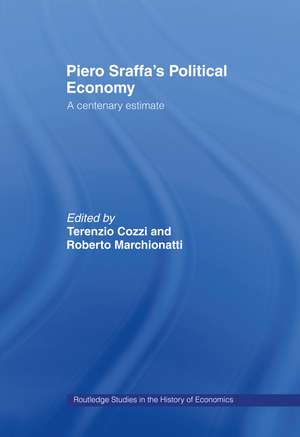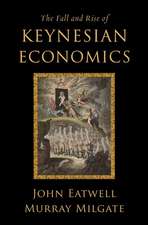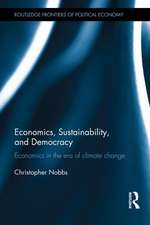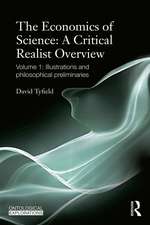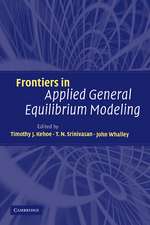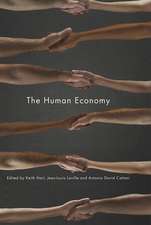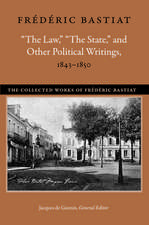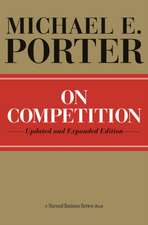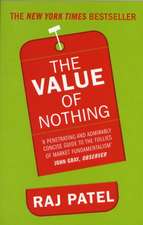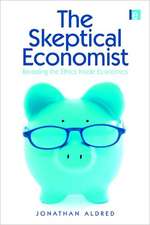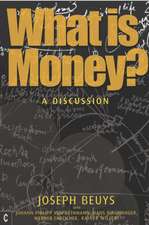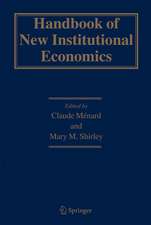Piero Sraffa's Political Economy: A Centenary Estimate: Routledge Studies in the History of Economics
Editat de Terenzio Cozzi, Roberto Marchionattien Limba Engleză Hardback – 23 noi 2000
| Toate formatele și edițiile | Preț | Express |
|---|---|---|
| Paperback (1) | 477.07 lei 6-8 săpt. | |
| Taylor & Francis – 15 aug 2014 | 477.07 lei 6-8 săpt. | |
| Hardback (1) | 1339.50 lei 6-8 săpt. | |
| Taylor & Francis – 23 noi 2000 | 1339.50 lei 6-8 săpt. |
Din seria Routledge Studies in the History of Economics
-
 Preț: 378.26 lei
Preț: 378.26 lei -
 Preț: 316.51 lei
Preț: 316.51 lei -
 Preț: 302.55 lei
Preț: 302.55 lei - 9%
 Preț: 1003.12 lei
Preț: 1003.12 lei -
 Preț: 324.46 lei
Preț: 324.46 lei -
 Preț: 311.28 lei
Preț: 311.28 lei -
 Preț: 326.99 lei
Preț: 326.99 lei -
 Preț: 326.82 lei
Preț: 326.82 lei -
 Preț: 665.69 lei
Preț: 665.69 lei - 9%
 Preț: 935.40 lei
Preț: 935.40 lei -
 Preț: 395.82 lei
Preț: 395.82 lei -
 Preț: 280.74 lei
Preț: 280.74 lei -
 Preț: 318.31 lei
Preț: 318.31 lei -
 Preț: 392.72 lei
Preț: 392.72 lei - 8%
 Preț: 392.82 lei
Preț: 392.82 lei -
 Preț: 310.43 lei
Preț: 310.43 lei -
 Preț: 214.15 lei
Preț: 214.15 lei -
 Preț: 399.71 lei
Preț: 399.71 lei -
 Preț: 157.37 lei
Preț: 157.37 lei - 26%
 Preț: 850.91 lei
Preț: 850.91 lei - 27%
 Preț: 995.39 lei
Preț: 995.39 lei - 18%
 Preț: 1005.04 lei
Preț: 1005.04 lei - 18%
 Preț: 1002.60 lei
Preț: 1002.60 lei - 28%
 Preț: 1046.46 lei
Preț: 1046.46 lei - 18%
 Preț: 1280.31 lei
Preț: 1280.31 lei - 18%
 Preț: 1055.51 lei
Preț: 1055.51 lei - 18%
 Preț: 1055.51 lei
Preț: 1055.51 lei - 28%
 Preț: 987.72 lei
Preț: 987.72 lei - 25%
 Preț: 824.17 lei
Preț: 824.17 lei - 18%
 Preț: 1061.93 lei
Preț: 1061.93 lei - 18%
 Preț: 716.32 lei
Preț: 716.32 lei - 18%
 Preț: 1006.07 lei
Preț: 1006.07 lei - 18%
 Preț: 1069.92 lei
Preț: 1069.92 lei - 12%
 Preț: 342.67 lei
Preț: 342.67 lei - 18%
 Preț: 1056.00 lei
Preț: 1056.00 lei - 28%
 Preț: 991.34 lei
Preț: 991.34 lei - 18%
 Preț: 1076.53 lei
Preț: 1076.53 lei - 18%
 Preț: 698.08 lei
Preț: 698.08 lei - 22%
 Preț: 332.02 lei
Preț: 332.02 lei - 18%
 Preț: 1169.78 lei
Preț: 1169.78 lei - 18%
 Preț: 1059.84 lei
Preț: 1059.84 lei - 30%
 Preț: 852.88 lei
Preț: 852.88 lei - 25%
 Preț: 830.10 lei
Preț: 830.10 lei - 18%
 Preț: 1119.93 lei
Preț: 1119.93 lei - 18%
 Preț: 1062.98 lei
Preț: 1062.98 lei - 18%
 Preț: 953.01 lei
Preț: 953.01 lei
Preț: 1339.50 lei
Preț vechi: 1633.53 lei
-18% Nou
Puncte Express: 2009
Preț estimativ în valută:
256.30€ • 267.63$ • 211.65£
256.30€ • 267.63$ • 211.65£
Carte tipărită la comandă
Livrare economică 15-29 aprilie
Preluare comenzi: 021 569.72.76
Specificații
ISBN-13: 9780415224246
ISBN-10: 0415224241
Pagini: 456
Dimensiuni: 156 x 234 x 25 mm
Greutate: 0.81 kg
Ediția:1
Editura: Taylor & Francis
Colecția Routledge
Seria Routledge Studies in the History of Economics
Locul publicării:Oxford, United Kingdom
ISBN-10: 0415224241
Pagini: 456
Dimensiuni: 156 x 234 x 25 mm
Greutate: 0.81 kg
Ediția:1
Editura: Taylor & Francis
Colecția Routledge
Seria Routledge Studies in the History of Economics
Locul publicării:Oxford, United Kingdom
Public țintă
PostgraduateCuprins
Introduction, A memoir by Sergio Steve PART I On Sraffa’s biography 1 A child of Cultura Positiva: Turin and the education of Piero Sraffa 2 Piero Sraffa’s early approach to political economy: from the gymnasium to the beginning of his academic career PART II Sraffa’s contribution to the Cambridge debates in the 1920s and 1930s 3 Sraffa and the criticism of Marshall in the 1920s 4 Sraffa and Cambridge economics, 1928–1931 5 On some controversial aspects of Sraffa’s theoretical system in the second half of the 1920s Comments 6 On Marshall’s representative firm: a comment on Marchionatti 7 Why did Sraffa lose interest in imperfect competition? A comment on Marcuzzo PART III Continuity and change in Sraffa’s thought: from the 1920s to Production of Commodities by Means of Commodities 8 Continuity and change in Sraffa’s thought: an archival excursus 9 Some notes on the Sraffa Papers 10 From the 1925–6 articles to the 1960 book: some notes on Sraffa’s not so implicit methodology 11 Sraffa’s edition of Ricardo’s Works: reconstruction of a reconstruction 12 Production of Commodities by Means of Commodities between criticism and reconstruction: the given quantities assumption 13 A comment on Salanti and Signorino 14 A comment on Rosselli 15 A comment on Roncaglia PART IV Specific topics 16 Production of Commodities by Means of Commodities and the open economy 17 Sraffa and the mathematicians: Frank Ramsey and Alister Watson 18 Monetary analysis in Sraffa’s writings 19 On the relationship between Sraffa and Keynes 20 Sraffa on Hayek: unexpected influences Comments 21 A comment on Steedman 22 Monetary analyses in Sraffa’s writings: a comment on Panico 23 Whatever happened to Dr Hayek after the debate with Mr Sraffa? A comment on Zappia
Notă biografică
Terenzio Cozzi is Professor of Economics at the University of Torino, Italy. He is also Professor of Money and Finance, Coripe Master of Economics, Torino. He has previously authored Teoria dello sviluppo economico, and Elementi di economia politica: Un testo europeo (with S. Zamagni), and has published essays and articles in the fields of macroeconomics, growth and cycles, and Keynesian economics. Roberto Marchionatti is Professor of Economics at the University of Torino, Italy. His previous publications include Karl Marx Critical Responses and “From Our Correspondent”, Luigi Einaudi’s Articles in The Economist, 1908–1946, and he has published extensively in the fields of economic theory, industrial economics and history of economic thought.
Descriere
A century after his birth, this volume presents a re-assessment of the life and work of Piero Sraffa, one of the great economists of the twentieth century.
